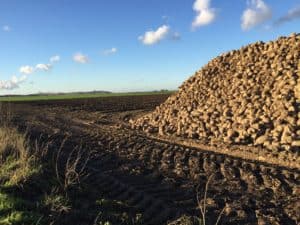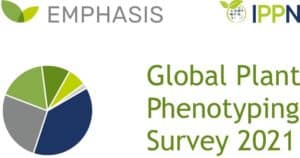NEWS
Stay updated on the latest developments in plant science policy and EPSO activities!
In February 2020, The ERA-Net Cofund on Sustainable Crop Production (SusCrop) launched a 2nd transnational call for proposals. Following the Co-funded Call in 2018 (1st call), the aim of this 2nd call is to support scientifically excellent transnational research, development and innovation projects that contribute to the improvement of sustainability (environmental, economic and societal) and resilience of crop production within the European Research Area (ERA). In addition, this 2nd transnational call puts greater emphasis on how projects might contribute to food and nutritional security in the light of climate change.
Sixteen funding agencies from 12 different countries (Belgium, Denmark, Estonia, Finland, France, Germany, Latvia, Poland, Romania, Spain, Turkey and UK) supported this Call. At the 1st stage, 46 eligible pre-proposals underwent a scientific peer review process by a panel of international experts (IEP). Based on the evaluation results, the Steering Committee invited 15 consortia to submit a full proposal by September 10. The experts and funders meetings of the full proposals were held in October-November and resulted in the selection of eight consortia for funding with a total amount of about 7,5 Mio €. All four proposed call topics were addressed by the selected projects.
The eight projects were recommended for funding by the 2nd Call Steering Committee. The national contract negotiations for funding are currently ongoing and projects are expected to officially start early 2021.
Copyright: Christian Breuer, Ptj
Source: SusCrop-ERA-NET
The EPSO Working Group on Plants and Microbiomes has the pleasure to announce its third workshop to take place online on 13-14 January 2021, 09:00 – 12:00 and 09:00 – 13:15 respectively.
This third workshop has two aims. First, we will hear first highlights from (multi-)national plants and microbiomes research and innovation initiatives – to this end we will invite later on Expression of Interest from our Working Group members to present. Second, we will discuss in more detail two themes which need further elaboration by the Working Group: ‘Advancing from correlation to causation from lab to field to ecosystems’ and on ‘Research infrastructure’ – and provide advice to Horizon Europe and (multi-)national research strategies.
The meeting intends to increase collaborations between the working group members (via e.g. COST action, Coordination & Support Actions, initiate more collaborations both bi-and multi-lateral).
At the end of the meeting, a workshop report will be drafted on the current status, goals and next steps in plants and microbiomes research – particularly – and will be provided as science advice to policy to the European Commission.
We kindly ask you to register for your participation by e-mail to [email protected] before 18 December 2020.
We hope welcoming you in January!
Angela Sessitsch, Paul Schulze-Lefert, Corné Pieterse and Karin Metzlaff
Click here to read: The workshop Handout 08.12.2020
Contacts: Angela Sessitsch, Paul Schulze-Lefert, Corné Pieterse and Karin Metzlaff
The plant phenotyping initiatives IPPN and EMPHASIS have recently launched the Global Plant Phenotyping Survey 2021, which addresses participants from all geographic regions and in all professional disciplines in any way related to plant phenotyping. The survey is open until 9 February 2021.
For the past six years, IPPN and EMPHASIS IPPN and EMPHASIS have carried out their bi-annual Plant Phenotyping Surveys covering basic and advanced questions related to plant phenotyping for the purpose of assessing the status of global plant phenotyping and emerging fields, to identify potential gaps and understand the demands of the community. Participating in these surveys empowers everyone who contributes to add to the big picture of how plant phenotyping is applied and viewed.
Results will be made available online, and in the past, survey results have been extensively used for analyzing the global status of plant phenotyping (e.g. in this review by Yang et.al.).
Source: Institute of Bio- and Geosciences: Plant Sciences (IBG-2), Forschungszentrum Jülich GmbH
This international conference will be held on 18 – 22 January 2021 in a virtual format. It is hosted by the German Federal Ministry of Food and Agriculture (BMEL) an will tackle key issues regarding the future of the global agri-food industry.
The programme is available at: https://www.gffa-berlin.de/en/fachveranstaltungen-2021/
Participate to the Science Slam on 21 January 2021
A Science Slam will be held for the third time on the occasion of the 13th GFFA on 21 January 2021.
It will present four Science Slams of 10 minutes at most each connected with this year’s topic “How to Feed the World in Times of Pandemics and Climate Change?”. It should not only be characterised by scientific aspiration and originality but also by an entertaining and amusing delivery. Winners will be selected by the audience in the end in the form of an online vote.
Who can apply to the Science Slam? BMEL is looking for (junior) scientists and students from relevant research institutions and universities from the agri-food sector, who deal with this subject area and are interested in presenting a slam in English via live stream in front of a mixed audience.
For the GFFA Science Slam you can apply until 22 November 2020.
For more information: https://www.gffa-berlin.de/en/fachveranstaltungen-2021/science-slam/
Source: Federal Ministry of Food and Agriculture
To hold the fascinating events about the world of plants, which hundreds of colleagues organise across the world, as physical interactive events, the Global and National Coordinators of the international Fascination of Plants Day (FoPD) decided to postpone the next FoPD from 2021 to 18th May 2022.
The Fascination of Plants Day, initiated and coordinated by the European Plant Science Organisation (EPSO), is brought to live by a team of National coordinators and hundreds of plant enthusiasts organising events. They invite everybody around the world to organise interactive events on the fascination, secrets, immense potential and manyfold uses of plants for your community, region, country around the 18th May 2022.
This ranges from basic to applied research, agriculture, horticulture, forestry, plant breeding, biodiversity, nourishment and nutrition, plant protection, environmental conservation, renewable resources, healthy and diverse food and high value products for medicine, cosmetics, food and much more.
Already 50 countries have confirmed their National FoPD Coordinators for 2022 and more are welcome to join in.
In 2019, the 5th FoPD generated over 860 interactive events in over 51 countries across the world with many thousand participants. Get inspired by The Fascination of Plants Day Success Stories 2019 for events you may organise.
Meanwhile, a group of FoPD National Coordinators will develop ideas to have some inspiring online events in 2021, the best option in times of remote working around the world, to share their enthusiasm and fascination of plants.
Looking forward preparing with you for most exciting events in 2022 and possibly see some interactive virtual events in 2021.
The FoPD Global and National Coordinators
Click here to read: Full EPSO news 16.10.2020
Contacts:
- FoPD Global Coordinators: Karin Metzlaff & Alexandra Barnoux, EPSO; Trine Hvoslef-Eide, NMBU / NO; Przemysław Wojtaszek, AMU / PL
- FoPD National Coordinators: https://plantday18may.org/countries/ click on the country of your choice.


